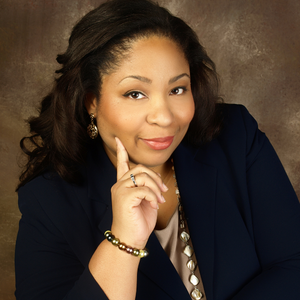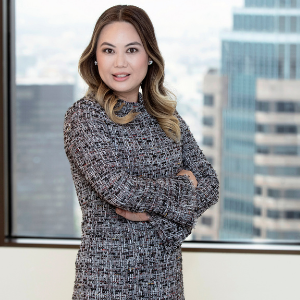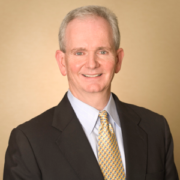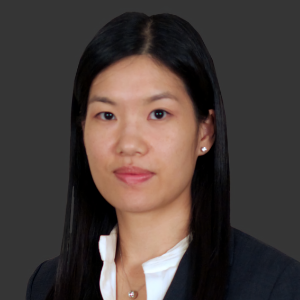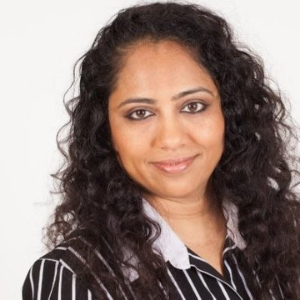Nneka Orji: Chief Operating Officer, Morrinson Wealth Management, UK
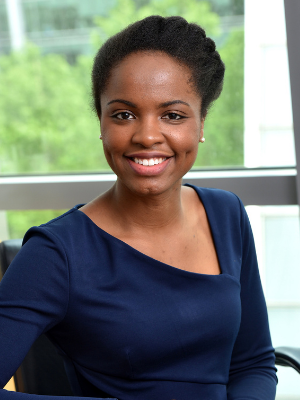 “So many outcomes are often the result of sometimes small decisions that aren’t constructively challenged with another perspective,” says Nneka Orji, who is willing to be that voice in the room.
“So many outcomes are often the result of sometimes small decisions that aren’t constructively challenged with another perspective,” says Nneka Orji, who is willing to be that voice in the room.
Nneka speaks to speaking up when it’s uncomfortable, why mentoring is a key part of people management, and the value of knowing who you are.
From Consulting to COO
After acquiring a Masters of Engineering degree from Oxford, Nneka went into consulting in 2010, first with Accenture and then with Deloitte UK.
Born in India and having grown up across Nigeria, France, Trinidad and the UK, Nneka loved the variety of working with different people and cultures to address diverse problems at a challenging pace.
She earned frequent promotions across her ten year stint in management consulting. As she kept learning, the lifestyle of business travel suited her.
During her time at Deloitte UK, she did a secondment as Chief of Staff for the Chairman’s office. Considering him her first sponsor—a leader who cared, pushed and supported— Nneka gained insight into the mechanics of being in an influential position, running a large organization and interacting with leaders.
She joined Morrinson Wealth Management as Chief Operating Officer in 2019. Nneka highlights that it’s a misconception that she works only with people with great wealth. Often she’s working with clients who are trying to make the earnings they have work best for them.
“They’re trying to plan ahead and look at: How can I make the most of what I’m earning? How do I build a life that’s in line with what I want to deliver for my family, for my loved ones?” she says. “Giving them the financial education, awareness and savviness to manage their own finances and to live the lives they want is really fulfilling.”
Daring the Discomfort of Using Her Voice
While accustomed from school and engineering to being in male-dominated environments and often the only black person in the room, let alone black female, Nneka says that the playing field of financial services has still compelled her to thicken her skin, become more assertive and use her voice.
Several times, she has braved speaking up in a tough moment—both in support of fairness for others and for herself.
Nneka recalls one compelling example from her consulting days when she was in a meeting focused on the consideration of candidates for promotion. When she heard more senior colleagues vaguely describe why a certain female manager was not ready for promotion—such as from a “gut feel” or because of “cultural fit”—she challenged her seniors to be specific, direct and transparent.
“I said, ‘Why is it gut feel? Why do you think she’s not ready? Have you actually given her feedback?’” says Nneka, recalling they hadn’t. “I said, ‘It’s not fair on that individual to give these vague responses. We need to be really clear. She wants to progress. If there’s concern, it’s only right that we tell her, rather than effectively leading her on.”
“I was definitely challenging beyond the point they were comfortable, and I walked out of the room knowing I had pushed,” she recalls. “It’s not that I had anything to gain personally, but I felt that it’s only fair to everyone to have someone to speak for them, on their behalf. If I was in her situation, who would stand up for me?”
While she could have deferred to her senior colleagues, Nneka chose a clear conscience. Nneka reflects the discomfort was likely because she was touching on affinity bias or another elephant in the room that may have been unconscious, but so often proliferates the status quo.
“These kind of decisions affect people’s careers, successes and progressions, how much they’ll get paid and how much they can save and invest and so on,” states Nneka.
Speaking up for herself, Nneka has stood her ground amidst men twenty years her senior, only to earn their respect from her work. She also once directly expressed disappointment in a senior partner’s response and leadership when after three years of working for him, she approached him to talk an issue with one very difficult female client and his immediate suggestion was she must have done something wrong to invite the conflict.
“I feel it’s important to make sure it’s clear what you will stand or what you are willing to accept, in terms of basic respect,” says Nneka.
Supporting Others To See Their Potential
“I haven’t had formal mentors to be very honest,” says Nneka, though she has leaders to bounce perspectives off of. “But you can put together the strong points that you see in different leaders and create almost your own fictional mentor in that way.”
She’s inspired to emulate the leaders whom she looked forward to working with—who pushed her in the best way and with whom she came to learn more about herself and her abilities.
“I do see mentoring as a core part of managing, because you can manage as a task manager and the tasks will get done,” Nneka notes. “But what I’m trying to do is to be an inspiring leader. I try to instil a sense of raising aspirations; maybe a team member started their career thinking this was your limit, but actually they have so much more potential, if they want to do more.”
Nneka values communication and saying or hearing it like it is, so nobody suffers in silence while their needs go unknown.
When Nneka took on managing others, she didn’t realize how rewarding it would be. “When a team member comes and says I’ve developed so much over the past year because of your influence, it gives me a strong sense of fulfillment.
Nneka has been a formal mentor for over a decade, with the Social Mobility Foundation, working with graduate mentees with a socially or economically challenged background, and also with the Cherie Blair Foundation For Women, working with entrepreneurial women in countries like India or Kenya or Israel.
These experiences have enriched her so much, she also considers them “reverse mentoring”.
“I like to see how different people think and how different people’s life experiences have shaped who they are, and how that informs their thinking,” says Nneka. “There’s something about learning about someone else’s perspective on life, and being open to finding out something that you might not have known. That’s the thing I love the most.”
Knowing Who You Are
Nneka feels her support system, both her family and working with people who have her best interests at heart and gave her a platform, has supported her fast growth.
She recommends being “intentional about choosing who you work with”—seeking out people who accept you for yourself and push you in a good way while having your back.
She feels that early on, her parents helped her to know who she was, down to pointing out the reality that she would often be unique in the room—as a black female in the schools she was in, and in her working life, especially as she moves up in leadership.
“Some people would say you shouldn’t necessarily point out or emphasize the difference,” reflects Nneka, “but I think it was so helpful in terms of me knowing who I was and who I am, and being true to myself. Of course I wasn’t always as confident in this respect and I’ve grown a lot since, but being comfortable in your own skin, in terms of your own history and culture, is critical. As long as you know who you are, you know your motivations, your boundaries and you make decisions in line with these.”
Nneka has worked some long hours, and suspects that subconsciously she has been motivated to overwork as a proactive measure against casual suggestions of gender or ethnic minority initiatives playing into her promotions, a frustrating undermining of accomplishment that black women are more likely to be subjected to.
“Sometimes you don’t have to work as hard as you do to get the outcome that you want,” she has come to realize. “I think that’s probably a lesson I am still learning.”
Nneka loves to travel, workout, dance and listen to both crime podcasts and inspiring podcasts during long walks in the sunshine—such as Oprah Super Soul Sunday, HBR Women At Work, The Wallet, The Tim Ferriss Show.
She’s inspired by “people who find their purpose and commit to positively influencing communities – small or large”.
By Aimee Hansen



